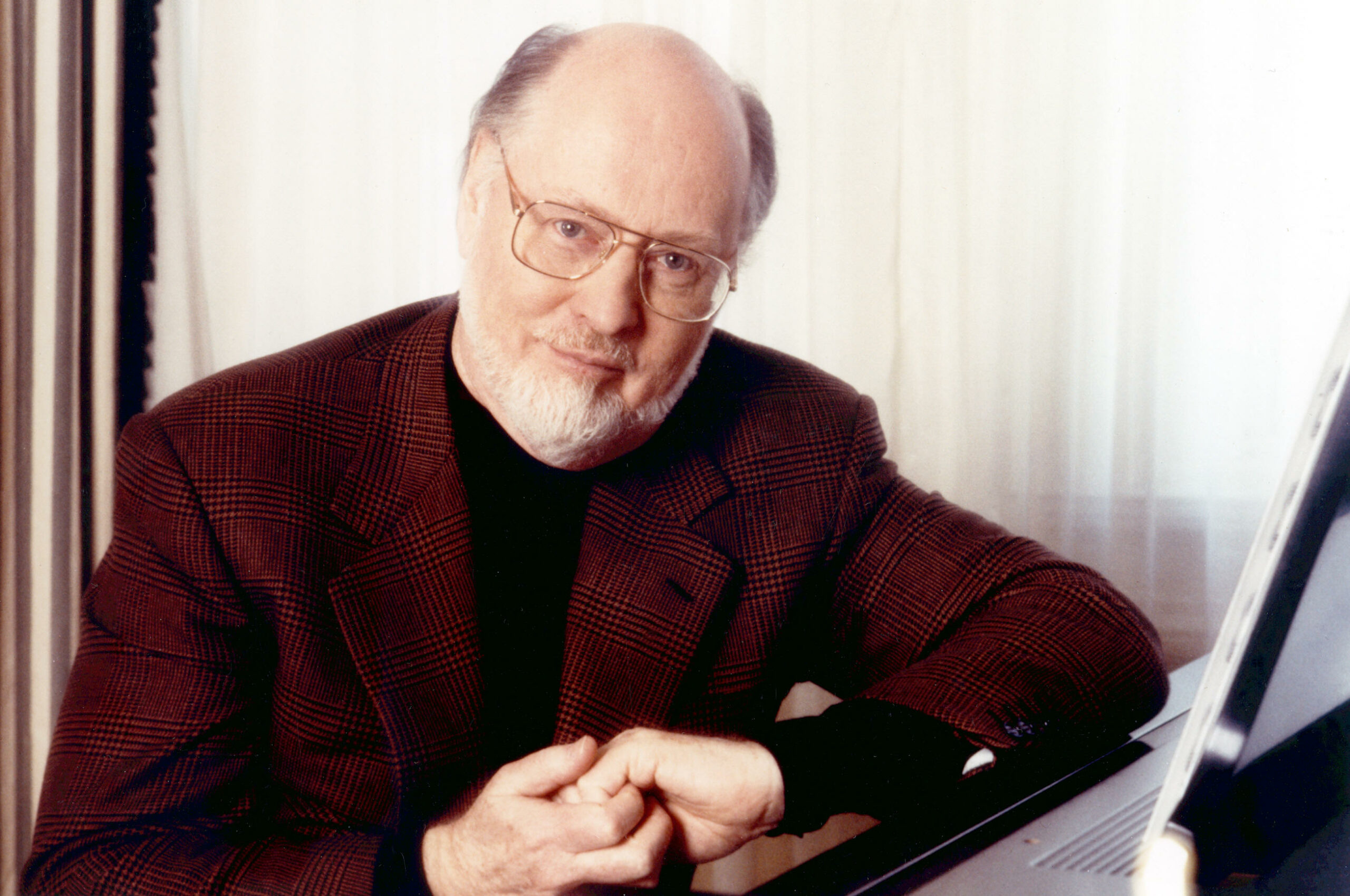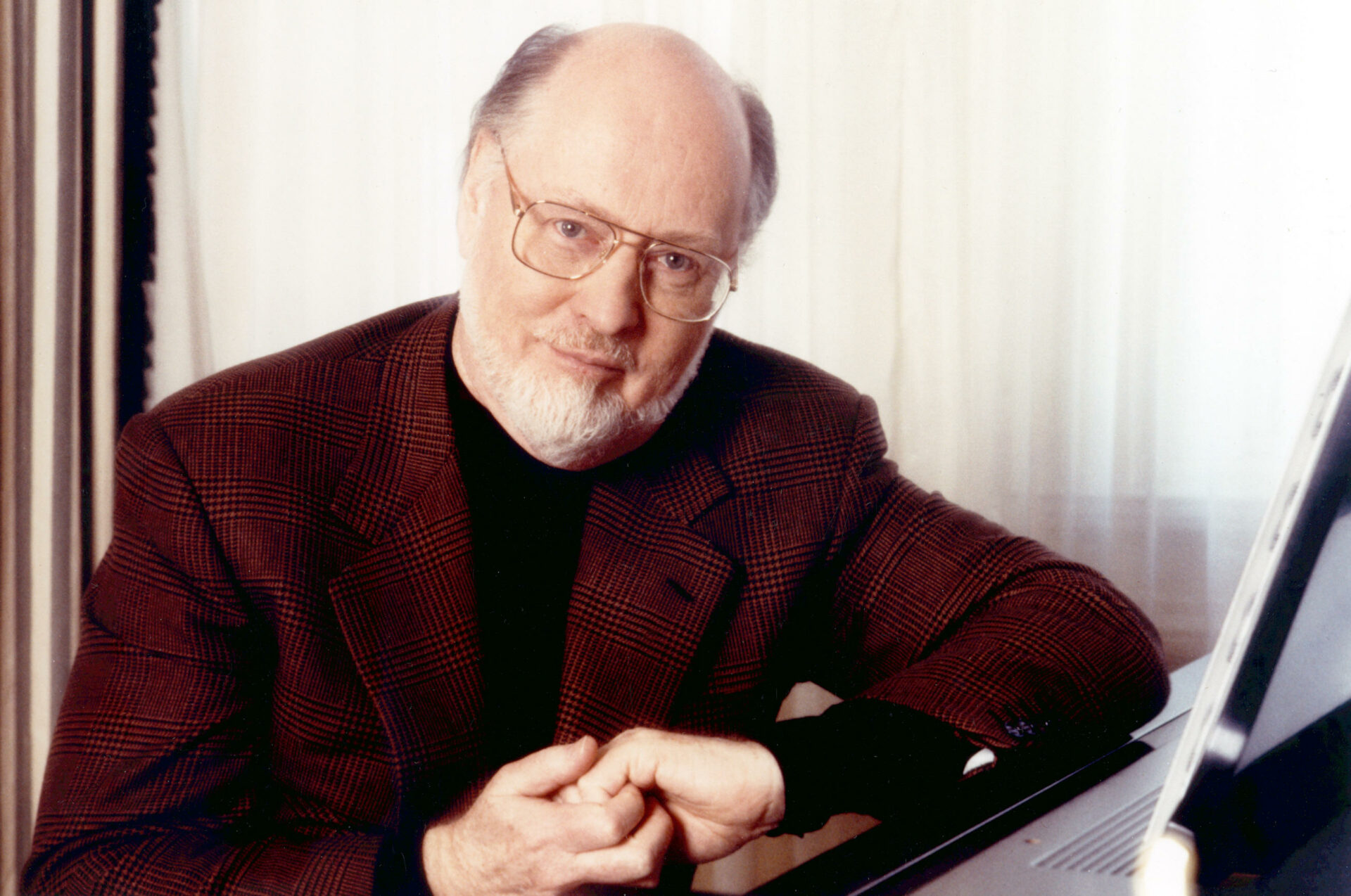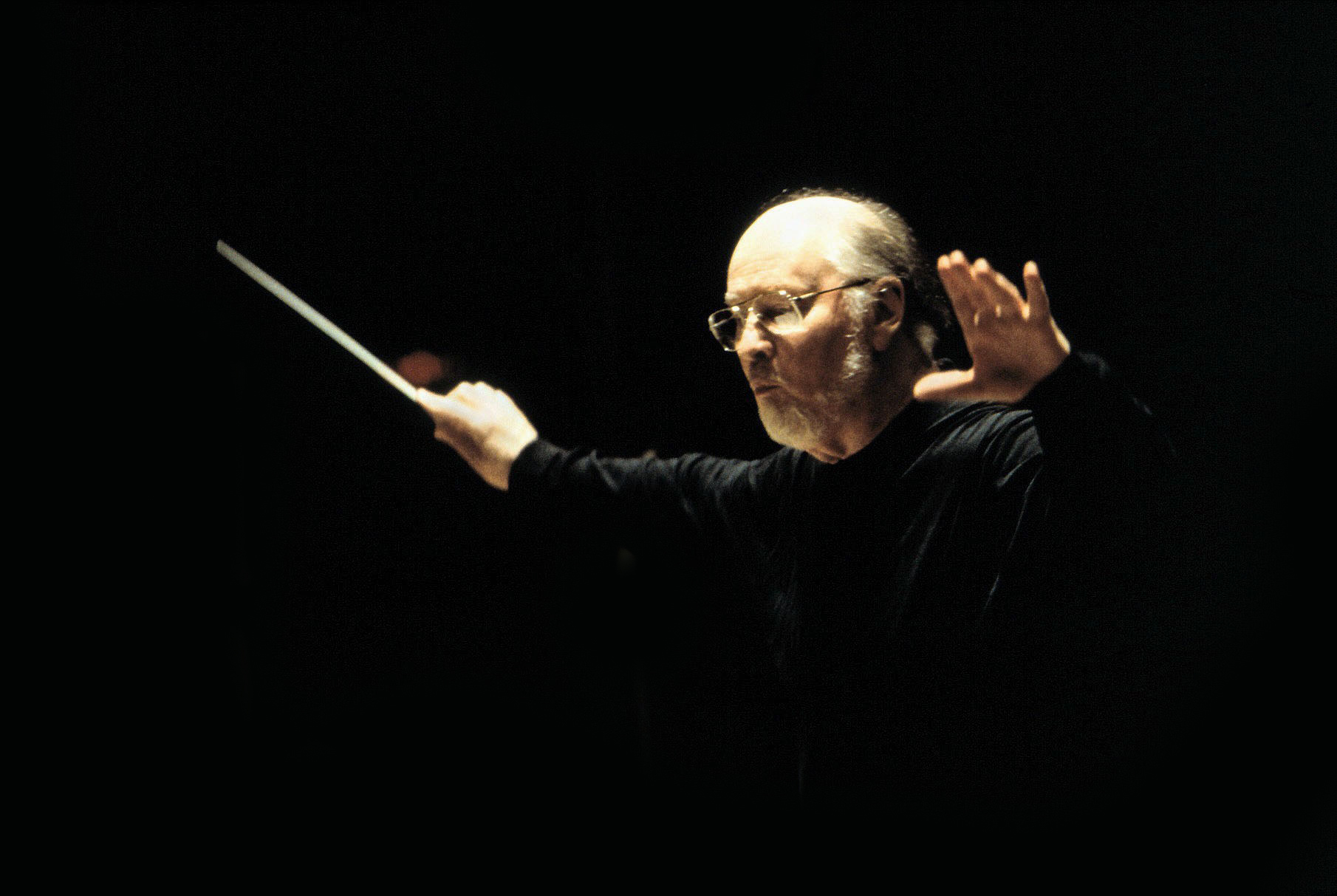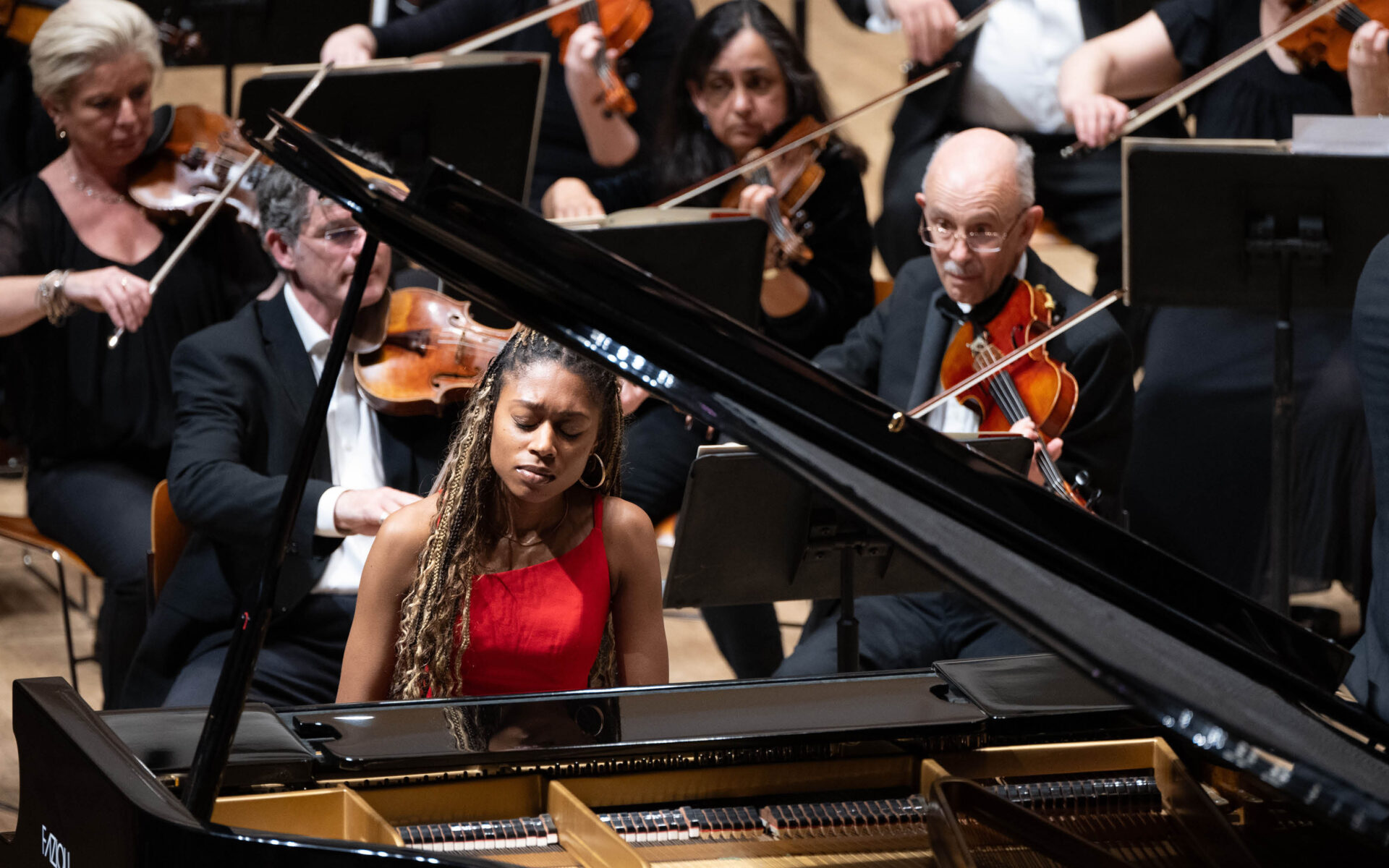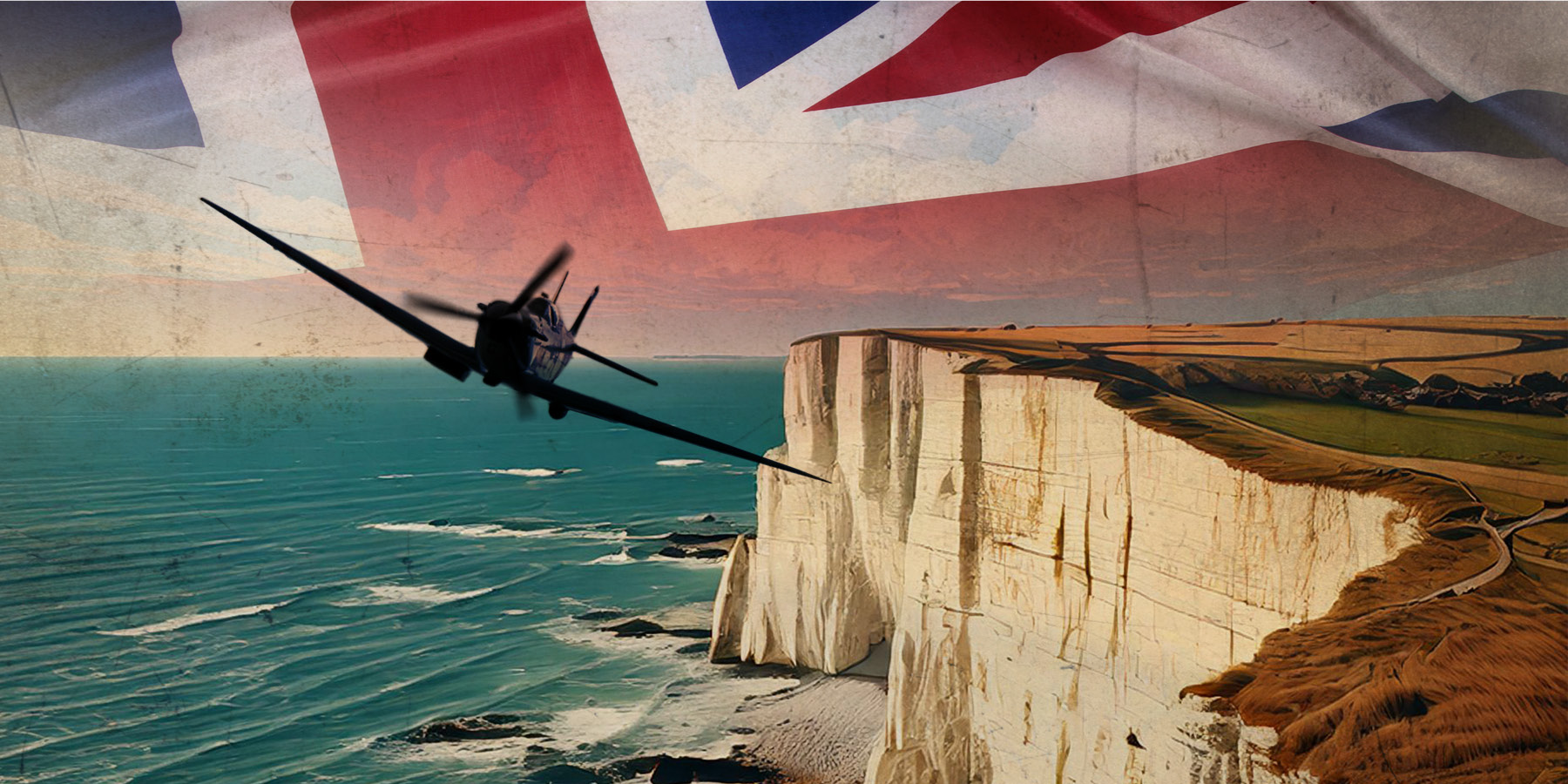27th September 2023
On Sunday 8th October, the Bardi Symphony Orchestra kick off their new season at De Montfort Hall with a film music extravaganza celebrating the music of John Williams. We’ve taken a look at the composer’s life and how he has become one of the greatest film composers of all time.
For more than five decades, John Williams has been captivating audiences with his music, transporting cinema-goers to World War II, down into the murky waters of the ocean, into outer space and even to a galaxy far far away. With a staggering 53 nominations and five awards to his name, he is one of the most decorated people in Oscar history and one of the world’s most beloved composers.
John Williams in 1996; conducting Saving Private Ryan in 1998 © Alamy
Following in his father’s musical footsteps, John began composition training at school, but his studies were interrupted in the early 1950s when he was drafted into the US Air Force, serving three years as a performer, conductor and arranger for the Air Force band. After this he began to work as a jazz pianist, and it was this experience that led him to compose his debut soundtrack, Daddy-O in 1958. Whilst the film itself was rather forgettable, Williams’ score was not, and after this first success his illustrious career began in earnest.
“Without John Williams, bikes don’t really fly, nor do brooms in Quidditch matches, nor do men in red capes. There is no Force, dinosaurs do not walk the Earth, we do not wonder, we do not weep, we do not believe.”
Steven Spielberg
Perhaps the most important milestone of John Williams’ career, and indeed film history, is the day he met Steven Spielberg. Their first collaboration was on The Sugarland Express (1974) and this was the beginning of arguably the greatest director/composer partnership of all time. Together the duo has produced over 20 films such as the blockbusters Jaws (1975), Raiders of the Lost Ark (1981) and Jurassic Park (1993).
In 1977, director George Lucas needed a composer capable of taking on the epic task of scoring his space opera, Star Wars. Spielberg immediately recommended Williams for the job, who matched the stunning visual effects on screen by delivering an expansive score, reminiscent of the music of the Golden Age of Hollywood. Both the original film and its music were a huge hit winning Williams his third Oscar. In 2005 Star Wars was named by the American Film Institute as the greatest American film score of all time.
Williams has composed well over a hundred film scores, many of which have become instant classics, with some of the world’s most recognisable music. His ability to utilise grand, brassy ‘American’ colours and a romantic orchestral sound makes for a magical combination. He also makes regular use of ‘leitmotifs’: assigning a short theme to a certain character or idea, which is then expertly woven into the score to enhance the film’s narrative.
This is especially evident in franchises such as Star Wars, Superman (1978) and Harry Potter (2001), where these themes can be heard across several films.
Not just a film composer, John Williams is also a classical composer and distinguished conductor, directing many of the world’s best orchestras, most notably the Boston Pops from 1980 to 1993.

